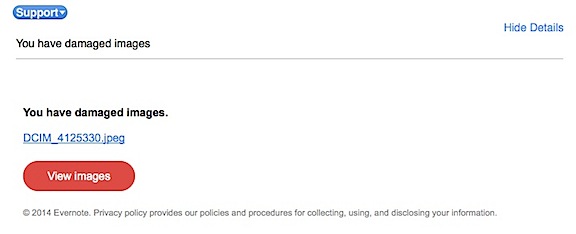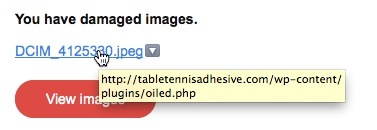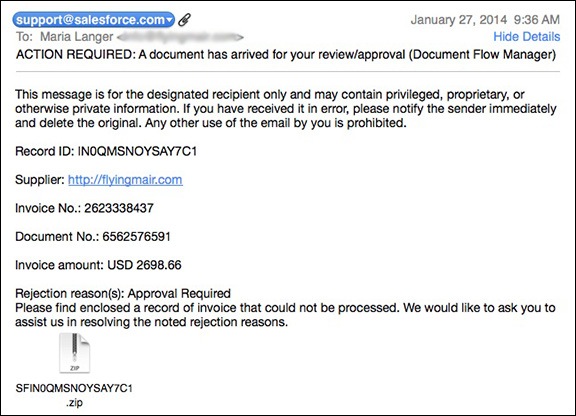I’m so tired of writing about these, but I really do feel a need to share and inform.
The other day, I got a very short email message from “Support” that claimed I had damaged images. There was a link apparently to the image. A footnote had an Evernote copyright. Here’s the whole thing:

This is the entire message.
Yes, I do use Evernote. But I don’t put images there. So it was pretty easy for me to expect a scam.
How to Be Sure
Here’s how I knew for sure it was a scam. Pay attention, newbies!
Who is it from?

Evernote Support’s email is debra@tazland.net? I don’t think so.
The first thing I did was click the name in the from field. In Mail on my Mac, that displays a menu that includes the email address of the sender. This is obviously not Evernote support. It’s an idiot scammer.
What is the link really to?

This is not a link to an image. It’s a link to a PHP file that can install malware on your computer.
Just because text is colored and looks like a link doesn’t mean it links to what the text says. In Mail on a Mac, I can point to the link and wait until a popup appears, telling me exactly where the link goes. Never click a link to a PHP file. It could install malware on your computer.
The same thing goes for buttons. Point to see where it goes before clicking. This button goes to the same place as the link text above it.
What Evernote Says
Enough people reported this problem to Evernote that they have a knowledge base article about it. You can find it here.
Be Careful Out There!
I’ve said it before and I’ll say it a million times more: never click a link in an email message unless you know for sure that it was sent by someone you know and trust. Even then there could be issues if that person’s account was hacked.








